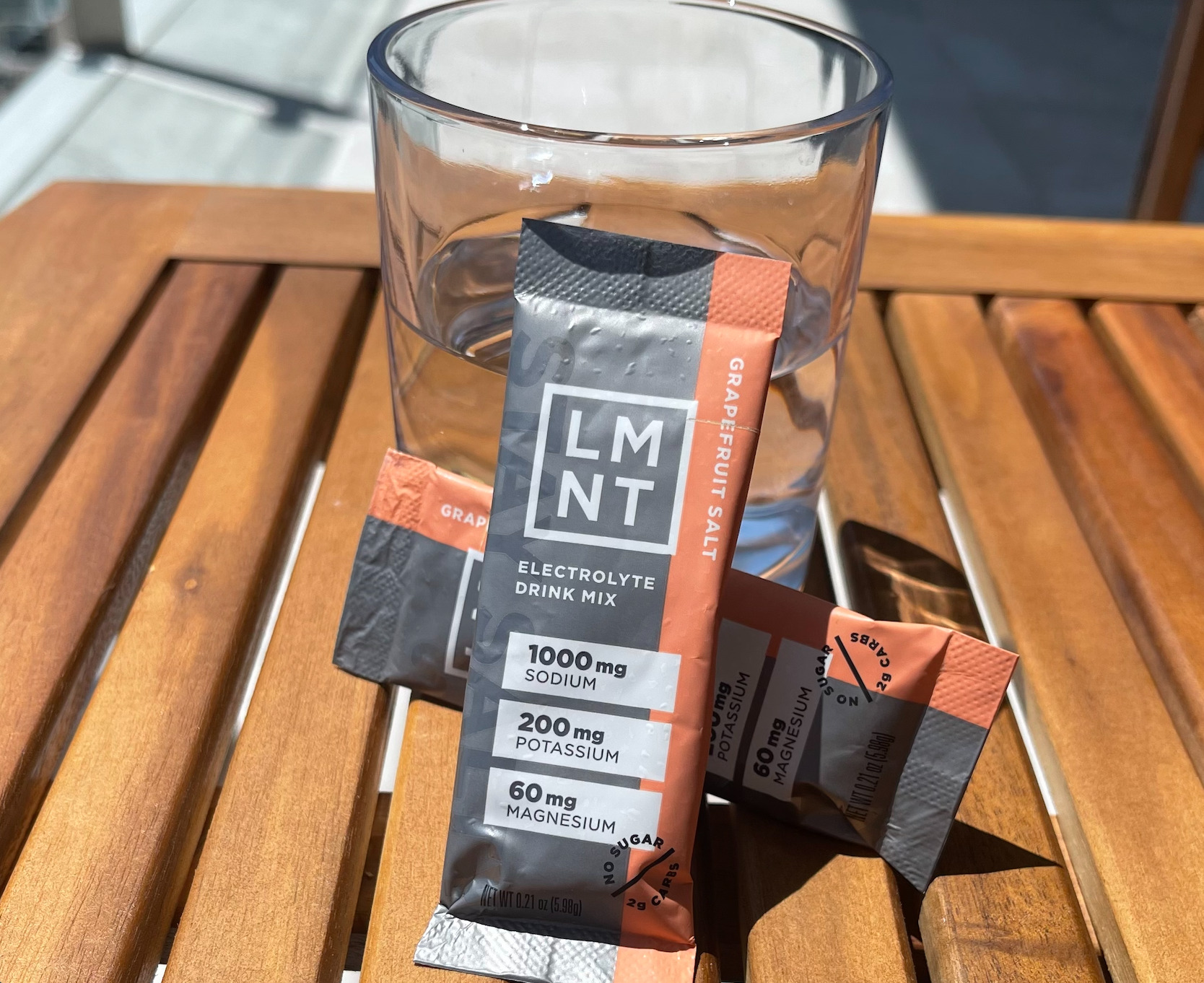Exercise is a fundamental component of healthy aging. It not only helps maintain physical function but also enhances mental and emotional wellbeing, leading to a more active, fulfilling, and enjoyable life in later years. Ensuring that we stay properly hydrated plays a crucial role in exercise performance, as it affects various physiological functions in the body. Staying properly hydrated before, during, and after exercise can have a significant impact on your ability to perform at your best and aid in aging well. Hint: hydration does not just mean chugging water.
To ensure you’re adequately hydrated for exercise you should pre-hydrate. Drink water with added electrolytes before you start exercising, ideally 1-2 hours prior to your workout. We recommend LMNT electrolytes because they have the proper balance of sodium, potassium, and magnesium. Throughout your workout, sip water with LMNT electrolytes, particularly if it’s a long or intense session. The amount of fluid you need depends on factors like the duration and intensity of your exercise, environmental conditions, and your individual sweat rate.

Here’s how hydration helps with exercise performance:
- Temperature regulation: When you exercise, your body generates heat, causing your core temperature to rise. Sweat is produced as a cooling mechanism. Adequate hydration helps maintain your body’s ability to sweat and dissipate heat effectively, preventing overheating and heat-related illnesses such as heat exhaustion or heatstroke.
- Blood volume maintenance: Hydration helps maintain your blood volume, which is essential for delivering oxygen and nutrients to working muscles. Dehydration can lead to a decrease in blood volume, making your heart work harder to pump blood, which can result in early fatigue during exercise.
- Electrolyte balance: Sweating not only loses water but also essential electrolytes like sodium, potassium, and magnesium. Proper hydration helps maintain the balance of these electrolytes in your body, which is essential for muscle function, nerve signaling, and maintaining proper hydration levels within cells.
- Muscle function: Dehydration can impair muscle contraction and coordination, leading to decreased strength and endurance. When you’re well-hydrated, your muscles function more efficiently, reducing the risk of muscle cramps and optimizing your overall performance.
- Cognitive function: Dehydration can negatively impact cognitive function, leading to poor decision-making and reduced concentration. In exercise, maintaining mental focus and staying alert are crucial for safety and optimal performance.
- Energy production: Water is involved in various metabolic processes, including the breakdown of carbohydrates and fats for energy. When you’re dehydrated, these processes may become less efficient, leading to reduced endurance and overall energy levels.
- Recovery: Proper hydration post-exercise is essential for recovery. Rehydrating after exercise helps replenish lost fluids, electrolytes, and nutrients, allowing your body to repair and rebuild muscle tissue and recover more effectively.
Staying hydrated is essential for optimizing exercise performance, preventing heat-related issues, and supporting overall physical and mental wellbeing during physical activity. It isn’t as simple as just chugging water. Making sure that you have a strategy and hydration routine in place will set you up for success. LMNT makes it easy. We are loving the Grapefruit Salt flavor this summer but they have a variety of flavors depending on what your preference is. Go to DrinkLMNT.com/AGEIST for a free 8-serving sample pack with any purchase.

